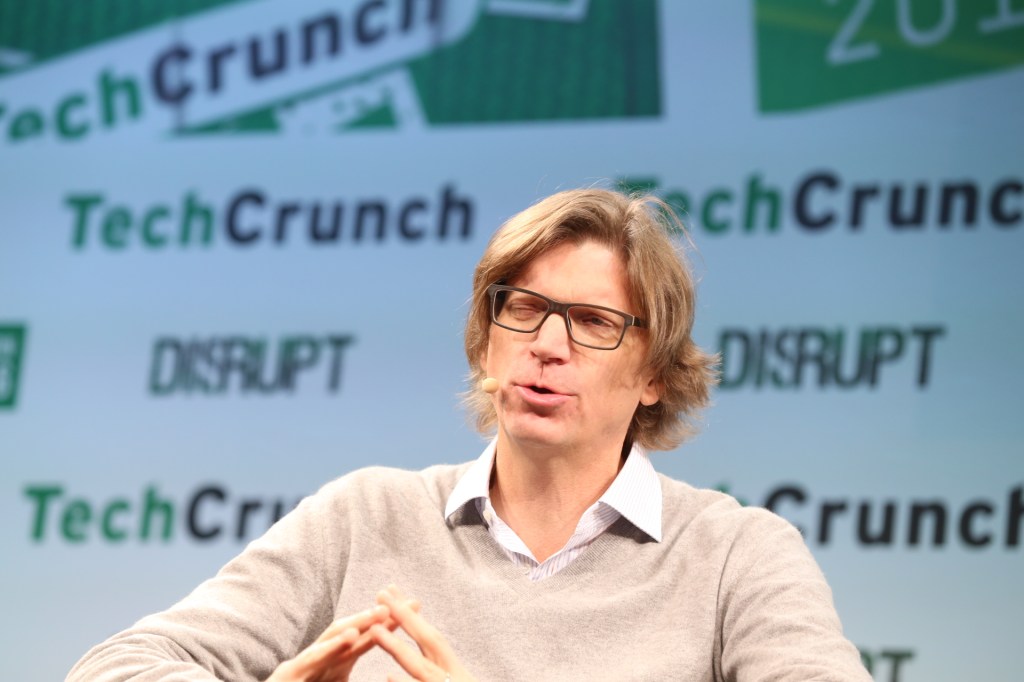As the world moves into economic headwinds and geopolitical uncertainty, European founders must get used to taking tough decisions to ensure the survival of their startups. This will include getting used to “flat” or “down rounds” of funding, after experiencing the high valuations of the last couple of years.
That was the message today at the Slush conference in Helsinki from Niklas Zennström, the iconic Skype co-founder, Atomico CEO and one of Europe’s most famous tech players.
In a keynote address Zennström gave a blunt assessment of the economic environment, while unpacking how he failed several times in his own career during tough economic conditions.
Talking about how he had to wind down two of his own businesses prior to Skype, he said today’s entrepreneurs would now need to turn their attention to the long-term success of their companies, and survival, rather than the “good times of the bull market” and the high valuations of the past, and that this would mean tough choices.
Zennström said despite the bad reputation of down rounds (a financing in which a company sells shares of its capital stock at a price per share that is less than the price per share it sold shares for in an earlier financing) or a flat round (a funding round in which a startup issues shares at the same post-money valuation as during its previous fundraising round, effectively meaning that the value of the company has gone down), startup founders may have to accept these as the price to pay for keeping their companies alive for the longer term.
“There’s a stigma. We’ve turned the down round into a worst-case scenario. We’re embarrassed about what it might say about our business, that it’s worth less now than it was a year ago,” he said.
He pointed to data from PitchBook showing an uptick in down rounds in Q3 this year, with almost 19% of all European VC funding now fitting this criteria. This is up from 12% in Q2, and the trend is continuing into Q4.
But he challenged Slush attendees to think about down rounds differently and not to take it personally: “Firstly, ‘down rounds’ are just a function of the broader market. It’s the reality we’re facing right now. People aren’t willing to pay what they were a year ago for shares in a technology company. Technology investment in Q3 is around 30% down on the same period in 2021. At Series A, pre-money valuations have fallen as much as 50% from their highs earlier this year. In this environment a lower valuation is no reflection on you. It’s market dynamics.”
He added that startup founders currently in fundraising mode should raise right away: “The biggest issue with down rounds is that people leave them so late. It’s easy to hope the market will improve. I’ve seen founders tempted to put off the raise waiting for things to change. For a company that is pre-profit, that means eating into future runway. And the less runway a business has, the riskier that company becomes.”
The alternative after six months could mean “a rescue financing littered with aggressive liquidation preferences and exit clauses. Don’t let that be you,” he said.
Lastly, he said down and flat rounds “are really about growth. Raising money strategically, before the point of no return, could prove a masterstroke. Any founder with the courage to raise money early, on clean terms, can continue to scale at a time when others are slowing down and losing talent. This may be the single best time to hire great people away from the competition. Whether the market changes in one or three years, these firms won’t have stood still.”
Reflecting on his own experience as a founder, Zennström said he had founded and folded a couple of companies prior to Skype, which was painful, but “in reality, it wasn’t as big a deal as I thought. My team had great experience and got amazing new jobs. And I brought the best people with me to the next idea. The only thing that crashed was my dream… and maybe my ego. But once it was over, I had the opportunity to start afresh. I was even more motivated to prove I could build a successful company.”
Ending on a positive note he said: “I started Kazaa in 2000 and Skype a few years later — just after stocks crashed 80% in the dot-com bust. And at first I thought — wow, I missed the boat!… But then a funny thing happened. We managed to find a way through. As our bank balance dwindled, we became more scrappy and cost efficient. What I realised was more resilient and enduring companies come from downturns. And based on what I saw then, and I’m experiencing now, I’ve never been more excited about what Europe is building…”
Following the speech, I asked Zennström if he thought it self-serving for a VC to be presenting a glossy view of down rounds. He said: “Atomico hasn’t led many down rounds, so this is about my personal experience as an entrepreneur and from situations I’ve seen talented founders struggle with years after Atomico’s initial investment. When a down round comes later, we’re then in the same boat as the founder — we both experience any decrease in value.”
He said data doesn’t suggest this funding environment is going away anytime soon, and the current cohort of companies will experience more down rounds: “The problem we have is that a combination of misplaced embarrassment and blind hope that the situation will change is preventing founders from raising at all. That means these founders stop building, and technology stops being developed. This could stop some amazing technologies in their tracks if we don’t kill the stigma. That would be very wrong when Europe has such an amazing toolkit for success in the long-term.”
Next month Atomico will publish its annual State of European Tech 2022.































Comment